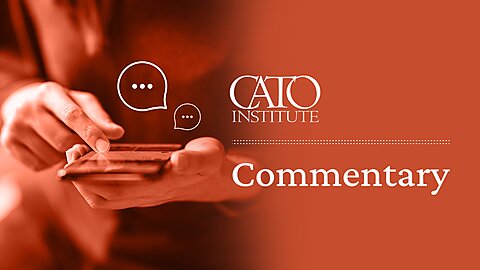In the United States, it is not uncommon to hear the refrain “hate speech isn’t free speech,” often for the speaker to be corrected that yes, free speech includes speech that many may find hateful or offensive. But in the recent debate over whether to create a regulator of online speech and otherwise expand speech restrictions, the Canadian justice minister unabashedly proclaimed, “Free speech in this country doesn’t include hate speech.”
Recently in Australia, the eSafety Commissioner ordered social media companies to remove videos of a terrorist attack. But the eSafety Commissioner went beyond its usual demand—instead of ordering the videos to be blocked only in Australia, it ordered that they be completely removed so that no users in the world could see them. X sued the eSafety Commissioner and even drew the attention of US free speech organizations, including the Foundation for Individual Rights and Expression (FIRE) and the Electronic Frontier Foundation (EFF).
While Americans often share a certain kindred spirit with other advanced democracies of the Anglosphere, it unfortunately does not extend to our legal treatment of disfavored speakers and speech. These recent incidents and proposals should remind free‐minded people everywhere that giving the government greater control over their speech is dangerous. More than that, they should inspire Americans to stand up for our constitutional order’s truly liberal view of expression as nations around the world vie for control over expression online.
Looking first at Canada, Bill C‑63 would create a new safety commission with significant powers to regulate and investigate social media companies. Similar to Europe’s Digital Services Act, this bill makes a host of specific and vague demands of social media companies, such as requiring companies to adequately “mitigate the risk that users will be exposed to harmful content,” defined as everything from nonconsensual sexual content to content that “foments hatred.” Like the Digital Services Act, it also threatens large punishments of up to 6 percent of global revenue for companies that fail to meet these regulations.
On top of this new online speech bureaucracy, the bill also ramps up online and offline hate speech laws. For example, hate crimes would become their own crimes that could be charged separately from other normal crimes. Existing hate speech laws would have their punishments increased from two to five years for various statements that incite or promote hatred against an identifiable group, while “advocating genocide,” however terrible that may be, will increase from five years in prison to a lifetime sentence. The bill would also allow private Canadians to seek what are effectively orders of protection against someone targeting them with hate speech and to pursue private civil complaints with penalties of up to $50,000 (Canadian).
These changes will end up stifling the free speech of average Canadians and give the government more leverage to pressure and demand social media companies to do its bidding or that of its political appointees at the Digital Safety Commission.
And they can look down under to see what happens when democracies empower speech bureaucracies. The Australian eSafety Commissioner has been demanding X to remove content that merely shows a terrorist attack in Australia. Now, normally, many platforms would respond to a lawful order of this sort, and if it didn’t violate their rules, they would simply block it in the country issuing the legal order. But the eSafety Commissioner went further and demanded that the content be removed from the platform entirely. Users around the world wouldn’t be able to see the content because the Australian eSafety Commissioner said so.
This idea that Australia’s laws should govern what every person on the internet is allowed to see is the dream of every censor and authoritarian state. Dictators of every stripe would love to invoke this precedent by demanding internet platforms fully remove content their regimes find harmful. Even the bishop who was attacked by the terrorist said that such censorship is wrong. And so, X is fighting the eSafety Commissioner in court.
The negative impact on speech, both domestic and international, that came from this censorship even drew the attention of the US free speech organization FIRE and the internet freedom organization EFF. According to local news, both organizations “pulled off a rare legal manoeuvre” in this case and were granted the right to represent international speech interests in the Australian courts.
Even beyond this case, the eSafety Commissioner is pushing for greater censorship of political speech. In March, it wrote a letter to the Canadian activist Billboard Chris demanding that he remove his X posts that criticize the appointment of an Australian trans activist to a World Health Organization panel. The eSafety Commissioner also demanded that X remove the content, which it appears to have geoblocked in Australia pending legal litigation.
And as I’ve mentioned before, Australia has been contemplating expanding its speech restrictions by empowering government bodies to regulate misinformation online. According to Freedom of Information Act requests, they plan to allow the current government to direct and specify the terms of an investigation into misinformation on platforms. The Australian government’s own human rights council said the proposed measures “risk undermining Australia’s democracy and freedoms.”
While still a far cry from the tyranny of George Orwell’s Big Brother, these existing and proposed Australian and Canadian speech codes and bureaucracies are lauded by repressive censors and pave the way for greater suppression of core civil and political rights. Without a strong First Amendment to protect their expressive rights, Australians and Canadians must remember the importance of protecting disfavored speech and the dangers of empowering the government to remove such speech. And it should redouble Americans’ commitment to laws and culture that value an expansive and bold view of expression.

